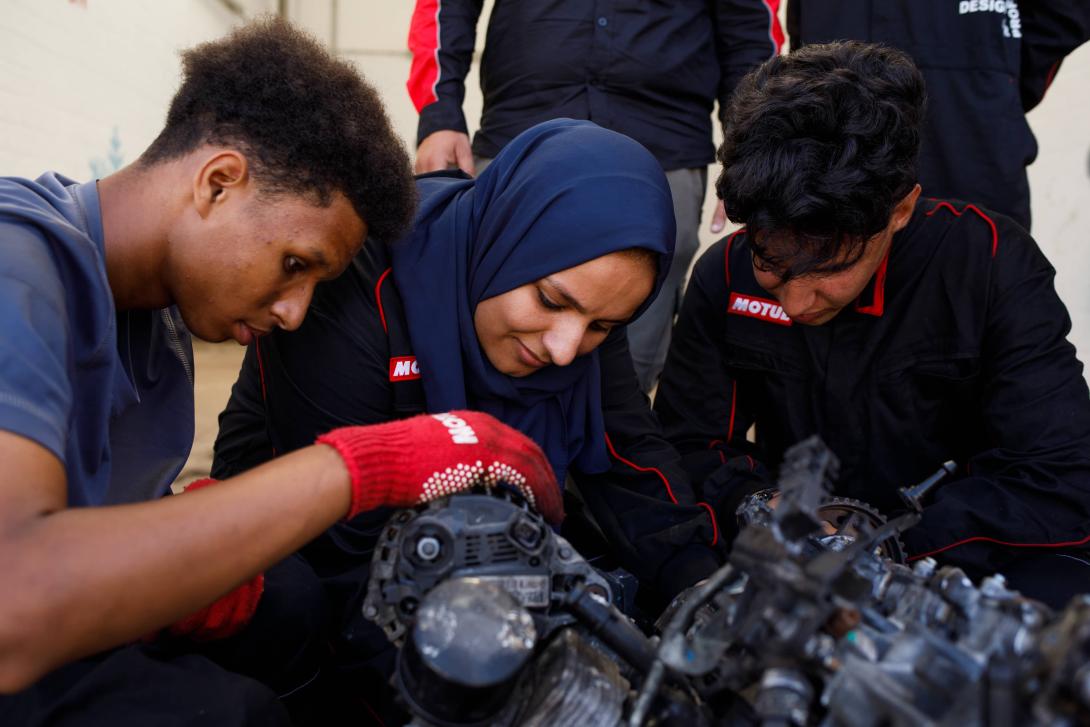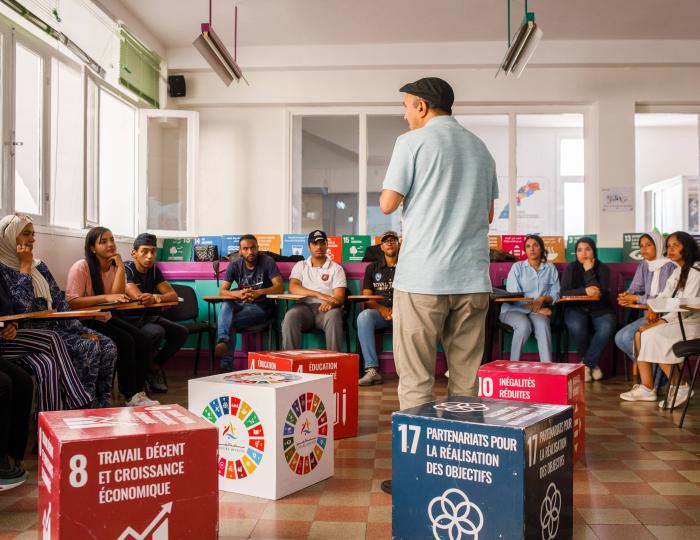

In Morocco, as in many other countries, women still have difficulties accessing the same training courses as men. They are often dissuaded from undertaking training traditionally perceived as being for men. In the projects we carry out with our partners, we seek to overcome these gender stereotypes by giving women the opportunity to freely choose the professional field in which they wish to train. This inclusive approach is particularly implemented by our partner organisations within the ‘Najah’ project, which supports young people in their professional reintegration.
Khadija, a young woman supported by our partner L'Heure Joyeuse, decided to join a training in car mechanics. She tells us her story.
- What are you doing here?
It’s been a great experience. Before, I knew virtually nothing about cars, how they work or the different parts. But when I heard about the car mechanics course, my interest was sparked. Since starting the classes and work placements, I now know better what a mechanic can do on a car.
- What did you do before?
I used to work in the hotel industry, which is the exclusive domain of women and girls. I liked the idea that this course was purely for men. I wanted to take the leap into a male-dominated field.
- Is it easy to work with almost only men?
Respect is essential. If there’s respect, and men and women work as equals, there’s no problem.
- What did you enjoy most about coming to l’Heure Joyeuse?
The support and trust we’ve built between us. At the same time, if you feel tempted to give up, l’Heure Joyeuse won’t give up on you. It won’t let go of the young people it supports. So, if we’re absent even for just one day, they call us. It obliges us to persevere in our training.
- What’s your dream?
When I’ve graduated and gained the experience, I would like to set up my own business and get other people to work with me. Perhaps have my own garage.
- Did your family support you in this choice? Did they agree?
You have to have a strong character and personality to achieve your dream. Admittedly, my family wasn’t supportive. Everyone tried to dissuade me by telling me that it was a male profession and that I had no place in it. But I know that you have to be strong to grow and not stay stuck in the same place. So I’m strong and happy.
Khadija's story is a wonderful example of how, with the right resources, young women can access worlds that are not usually open to them. We are committed to continuing our efforts to enable every young person we support to fulfil their potential and reintegrate into society in a sustainable way.
The Najah project: key figures for 2023
- 1,067 young people received guidance and integration (557 men and 510 women)
- 401 young people took part in entrepreneurship training (219 men and 510 women)
- 41 young people launched their own business (16 men and 25 women)
